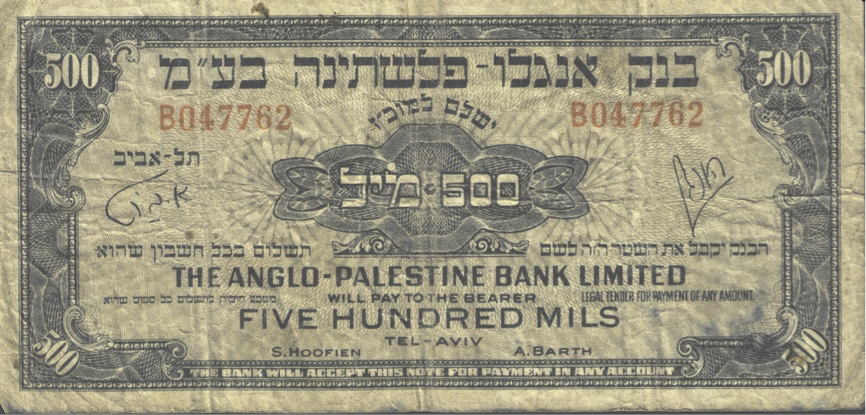
July 7, 1957
Born in Utrecht, Holland in 1881, Eliezer Siegfried Hoofien is known for providing Israel with nearly 50 years of banking and financial expertise. Hoofien immigrated to Ottoman-controlled Palestine in 1912 after serving as director of the Cologne office of the Zionist Central Office. He diligently guided the Yishuv (Jewish community in Palestine before the establishment of the State of Israel) with fiscal expertise that helped lay the groundwork for the state.
Upon arriving in Palestine, his first job was deputy manager for the Anglo-Palestine Bank, which was founded in 1902. Before World War I, the Anglo-Palestine Bank maintained branches in Jerusalem, Beirut, Hebron, Safed, Haifa, Tiberias and Gaza and was instrumental in financing agricultural projects, small start-up businesses and land purchases in Palestine.
In 1925, after the bank stabilized itself after World War I, Hoofien was appointed its general manager. One of his significant accomplishments in this role was financing the development of the young Jewish-controlled Tel Aviv port in the mid-1930s. It was built at a time when clashes between Arabs and Jews led to protests by workers at the Jaffa port, effectively ending Jewish access to it. Many credit Hoofien’s project with securing the Yishuv’s precarious economic situation and providing access to European and North African markets.
On August 16, 1948, an agreement was signed between Hoofien and Prime Minister David Ben-Gurion, appointing the bank as Israel’s financial agent and allowing the first non-British bank notes in the state. In 1950 the bank was renamed Bank Leumi L’Yisrael. It became a commercial bank in 1954 after the Bank of Israel opened.
After his death, Israeli Minister of Finance Levi Eshkol (1952-1963) stated, “In the many crises of the Yishuv during the last 50 years, we were accustomed to look at him [Hoofien] as the invincible rock upon which the stormy waves beat in vain. His words and steadfast behavior gave us confidence and tranquility in difficult times.”
